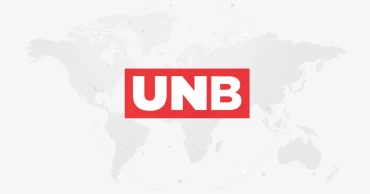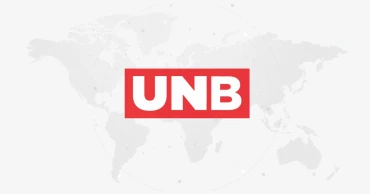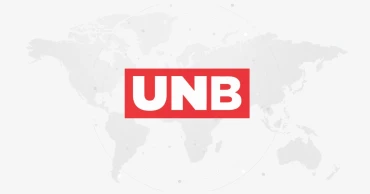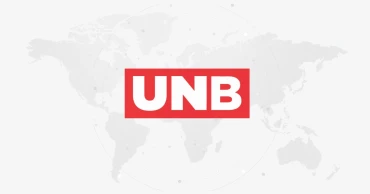financing
Mitigating deficit: Govt targets external financing of Tk 1200.3 billion and Tk 1306.4 billion over next two fiscals
In an effort to promote a robust domestic debt market, the Bangladesh government is strategizing to increase its share of marketable securities in the coming years. According to a recent Finance Ministry document, the administration is also committed to continued issuance of Islamic securities Sukuks but has currently shelved plans for Eurobond issuances on the global market.
As fiscal deficits loom, with projections showing a deficit of Tk 2792.3 billion for FY 2024-25 and Tk 3170.7 billion for FY 2025-26—equating to 5% of GDP each year—the government underscores the need for strategic domestic borrowing.
The focus remains on minimizing borrowing costs through traditional external creditors, which are preferred, the document detailed.
The strategy for addressing deficits includes an ambitious target of collecting Tk 1200.3 billion from external sources in FY 2024-25 and Tk 1306.4 billion in FY 2025-26, each constituting 2.1% of GDP.
Domestic sourcing is expected to contribute significantly more, with plans to collect Tk 1677.7 billion and Tk 1864.4 billion over the same periods, representing 2.9% of GDP.
UK's BII supports MSMEs, women entrepreneurs in Bangladesh with $50m debt commitment to BRAC Bank
Significantly, the banking sector is anticipated to contribute Tk 1384.9 billion in FY 2024-25 and Tk 1547.3 billion in FY 2025-26. In comparison, non-banking sectors will contribute Tk 292.8 billion and Tk 317.1 billion respectively.
Savings certificates will add Tk 191.4 billion and Tk 190.3 billion, while other sources are projected to contribute over Tk 100 billion annually.
The government maintains a prudent deficit financing policy to stave off debt distress, keeping the deficit steady at around 5% of GDP and maintaining a stable debt level at around 33% of GDP in recent years, the finance ministry document explained. This balanced approach aims to mitigate the risks associated with deficit financing while prioritizing sustainable economic development.
In terms of the medium-term outlook, the government expects domestic borrowing to remain stable at 2.9% of GDP. However, the approach to marketable securities will see a significant nominal increase, with a planned reduction in the reliance on higher-cost National Savings Certificate instruments, which will see a gradual decrease in their contribution to the financing mix.
External financing is also projected to increase nominally between FY 2023-24 and FY 2025-26, driven by greater disbursement for large projects and increased budget support, though dependent on the pace of project implementation.
Finance ministry to cut corporate tax for industries, consumer goods in upcoming budget
Bangladesh has received considerable budget support from external sources in recent years, a trend expected to continue in the medium term, the document stated, highlighting the ongoing commitment to leveraging both domestic and international financial strategies to meet fiscal challenges.
1 year ago
Micro, small, medium enterprises in Bangladesh face a financing gap of $2.8 billion
In Bangladesh, the micro, small, and medium enterprises (MSME) sector faces a financing gap of $2.8 billion, according to IFC, a member of the World Bank Group.
With nearly 10 million SMEs contributing to about 25 percent of the country's GDP, enhancing SME financing is key to boosting economic growth, it said on Tuesday (November 28, 2023).
To explore the various aspects of financing for small and medium enterprises (SMEs) in Bangladesh, IFC, in association with Bangladesh Bank and the government of Norway, organized a conference in Dhaka.
Read: BTCCI to promote Bangladesh as 'gateway to South Asia' for Thailand
Experts, policymakers, and stakeholders from across the world shared their insights to help foster a resilient and inclusive environment for SME financing in the country.
The event touched upon the partnership between IFC and Bangladesh Bank, results of an impact assessment study carried out on women-owned SMEs, next-generation SME financing trends, and global best practices in SME financing.
It also addressed the challenges and opportunities in SME financing, identifying solutions and innovations in light of global SME finance developments.
Highlighting the joint efforts of IFC and Bangladesh Bank in SME financing, the conference showcased initiatives, including developing the country’s first Credit Guarantee Scheme (CGS), reforming an SME finance policy, and strengthening the sector’s capacity.
IFC’s impact study on CGS, supported by the Norwegian Embassy, revealed that the number of first-time borrowers receiving loans in cottage, micro, and small enterprises and the average ticket size of the loans for women-owned micro and small enterprises was statistically significantly higher after the launch of CGS than ever before. Women entrepreneurs who received CGS-backed loans reported that it helped their businesses survive amid crises and provided new impetus to thrive.
Speaking at the conference as the chief guest, Governor of Bangladesh Bank, Abdur Rouf Talukder, said that recognizing that cottage, micro, small and medium enterprises (CMSMEs) are the backbone of society, Bangladesh Bank is spearheading several initiatives to mainstream medium and small businesses into the financial landscape.
"This includes establishing a new and dedicated Credit Guarantee Department that has already piloted an online platform—the Credit Guarantee Information Management System—to help lodge applications seamlessly. We are at an important crossroads of economic development and must ensure that everyone, especially those who often get left out, can be part of the financial picture," he said.
Read: BGMEA chief for stepping up economic diplomacy to boost Bangladesh-US trade
Deputy Governor of Bangladesh Bank, Abu Farah Md. Nasser, said a strong SME sector is akin to a superpower for creating jobs, export earnings, and productive proficiency.
"Now more than ever, we need to work together to enhance credit guarantee schemes, tap into alternative databases for SME lending, and ultimately fast-track CMSME finance in Bangladesh. We want to bridge the gap between rich and poor, make sure men and women have equal opportunities, and boost economic growth across the country," he said.
Martin Holtmann, IFC Country Manager for Bangladesh, Bhutan, and Nepal, said Bangladesh is rapidly accelerating its economic development, and creating more and better jobs is a priority they share with the country as long-term partners since 1985.
"IFC’s collaboration with Bangladesh Bank to develop SME solutions highlights a milestone in achieving financial inclusion and economic advancement and underscores the transformative power of partnerships, innovation, and our collective commitment to progress. We aim to increase access to financial products that are affordable, sustainable, and responsive to risks while developing institutional, operational, and policy frameworks to ensure the benefits of economic growth permeate every facet of this dynamic nation,” he said.
Espen Rikter-Svendsen, Ambassador of the Royal Norwegian Embassy in Bangladesh, said, “Lack of access to finance is the biggest impediment to the growth of SMEs in Bangladesh, particularly for the women-headed SMEs."
Recognizing and addressing the challenges faced by SMEs and women entrepreneurs is not just a matter of economic significance but also a step towards fostering gender equality, he said.
"It is essential to create an environment that facilitates easier access to finance for SMEs, encourages more women to take on entrepreneurial roles, and provides them with the necessary financial resources to succeed," said the ambassador.
Other participants included Qamar Saleem, CEO of the SME Finance Forum; Abdoulaye Seck, Country Director of the World Bank for Bangladesh and Bhutan; and managing directors and CEOs of leading banking and non-banking financial institutions in Bangladesh.
The event also included technical sessions and panel discussions focusing on global best practices and a future roadmap to accelerate the SME financing market in Bangladesh.
Read more: BGMEA urges Proparco to provide SMEs with the low-cost fund, grant
2 years ago
World Bank approves $200 million to help Bangladesh improve primary healthcare for common illnesses including dengue
The World Bank on Wednesday (August 30, 2023) approved $200 million to help Bangladesh improve primary healthcare services for treatment, prevention and referral for common illnesses including mosquito-borne diseases like dengue, and medical waste management in Dhaka North and South City Corporations, Chattogram City Corporation, and Savar and Tarabo municipalities.
The Urban Health, Nutrition and Population Project will establish a network of primary health centers offering a broad range of health, nutrition, and population services along with a direct referral system with secondary and tertiary-level facilities. About 2.5 million children under five in these urban areas will receive services, according to a release from the WB.
Read : World Bank’s cooperation sought to build power transmission lines from Nepal to Bangladesh
The credit is from the World Bank’s International Development Association (IDA), which provides concessional financing, and has a 30-year term with a five-year grace period.
The project will improve antenatal services for women, with a target of over 250,000 women receiving at least four checkups during pregnancy. It will also support hypertension screening and follow-up of about 1.3 million adults. To reduce out-of-pocket expenditure on medical care for the poor people, the project will renovate selected existing public health facilities, including government outdoor dispensaries, and family planning clinics.
The project will also focus on environmental health and preventive services like mosquito control, medical waste management, and behavior change communication to promote healthy lifestyles to prevent illnesses and mitigate the effects of climate change and air pollution on human health.
Read : Govt, World Bank ink $300 million financing deal for skill development, employment of rural youths
It will support the development and implementation of a multi-sectoral strategy to manage infectious disease outbreaks in cities and municipalities. To prevent dengue, the project will introduce a climate-based dengue early warning system and outbreak response capacities as well as take measures to clear breeding sites.
Abdoulaye Seck, World Bank Country Director for Bangladesh and Bhutan, said that Bangladesh has made remarkable progress in improving healthcare, particularly in rural areas.
“But urban areas have limited public healthcare facilities. Hence, poor people and slum dwellers are often forced to turn to more expensive private healthcare. Further, with high population density, climate change, and rapid urbanization, new health challenges are emerging, including an increase of dengue cases, infectious and non-communicable diseases," he said.
Read : Dengue: 7 more die, 2367 hospitalised in 24hrs
Iffat Mahmud, Senior Operations Officer at the World Bank and Task Team Leader for the Project, said that the impact of climate change on mosquito-borne and infectious diseases is often overlooked. An overreliance on fogging or spraying targeting adult mosquitoes and untargeted larval control is not an efficient use of resources.
“As mosquito lifecycle is influenced by climatic conditions, the project will strengthen the mosquito control laboratory and build capacities to implement innovative mosquito control measures and other community-based interventions,” the World Bank official said.
2 years ago
7 Local Startups Get Tk 150m Funds from Startup Bangladesh Limited
There are many examples around us where the dream of becoming an entrepreneur is shattered due to a lack of capital despite all the wonderful ideas. While the first-world countries have all the opportunities and support to launch a startup, Bangladesh doesn't have a favorable condition to begin a startup. However, still, some enthusiastic minds took their step and became successful. To accelerate their initiative, government-owned Venture Capital Company Startup Bangladesh Limited started their journey.
The Journey of Startup Bangladesh LTD
The cabinet has approved a state-owned venture capital company called Startup Bangladesh Limited in August 2019. According to the government's Information and Communication Technology Divisions (ICT), the Prime Minister gave policy approval to the company at a regular meeting. Once the company is established, it will be able to invest a maximum of Tk. 1 crore in the seed stage and a maximum of Tk. 5 crores in the growth-guided startup round in terms of startup valuation.
Read: The Emerging Logistics Tech Startups, Courier, Delivery Services in Bangladesh
According to a written statement from the Department of Information and Communication Technology, Startup Bangladesh Limited will play a key role in creating a sustainable startup ecosystem in Bangladesh as the first state-owned venture capital company and will take the government's vision-2021 one step further.
The aim of the company is to encourage foreign direct investment in the country by transforming the innovative ideas of startups in Bangladesh into business, as well as to eliminate unemployment, create employment and economic development for the country as a whole. ICT Minister Zunaid Ahmed Polok mentioned in the cabinet meeting that the company needs to be formed to provide funding, mentoring, co-working space, legal aid, etc., to startups. In 2019-2020 budget, the government had allocated Tk. 100 crore for the startup sector.
The journey started with the capital of Tk. 500 crore. This year, startup Bangladesh Limited will provide Tk 100 crore to 50 entrepreneurs. The funds will be spent on creating young entrepreneurs, innovating technologies, advances, new workplaces, and socioeconomic change.
Read: Digital Healthcare Startups in Bangladesh: An Overview
The announcement came at the signing ceremony of an agreement to celebrate the 50th anniversary of independence as well as the first series of startups to invest in Bangladesh. With this, the new campaign titled 'ShotoBorshe Shoto Asha' of Startup Bangladesh Limited officially started its journey on March 31, 2021. The campaign was officially announced by ICT minister Zunaid Ahmed Palak. Deputy Minister for Education Mohibul Hasan Chowdhury was the special guest.
The company gave Tk. 15 crores to 7 Bangladeshi startups this year. The seven companies are Pathao Limited, Sheba XYZ, Chaldal.com, Intelligence Machine, Dhaka Cast, Eduhive, and Moner Bondhu. This fund will enable them to improve the quality of their products or services, increase productivity, market and improve supply-chain management.
This time Startup Bangladesh Limited is investing only in established and successful ventures. But the company will also invest in the new entrants too, especially the students. Students need to be introduced to such startups; then they will be able to do something on their own without running after the job.
Read Angel Investment 101: Is It the Right Track for Your Startup?
Seven Bangladeshi Startups to Get Investments from Startup Bangladesh LTD
Following are the details of the 7 Bangladeshi who are getting Tk.15 crore.
Pathao
Bangladeshi ride-sharing company Pathao is going to get more investment and this time from the government-owned venture capital company. However, the exact amount is not published yet, but they will get a significant amount for sure. This is not the first time that Pathao received an investment. Previously the company raised investment from the secondary market in 2018 from Clearstone.
Earlier, Gojek, an Indonesian ride-sharing company, made a big investment in Pathao. Gojek invested $2 million in 2017.
In 2015, Pathao started its journey as a courier service and later brought ride-sharing services through the mobile app. At first, bikes were added, and then car or car services were added. After receiving the investment, the company adds food delivery and payment services to their services. But Pathao Pay as a payment service was stopped later as it did not get approval from Bangladesh Bank.
Pathao has expanded its ride-sharing service to Dhaka, Chittagong, and Sylhet in the country. It has also launched a ride-sharing service in Nepal.
Read:The 7 Most Promising Tech Startups in Bangladesh
Sheba XYZ
Seva XYZ is an online service-based marketplace in Bangladesh. There are many services in the service app, including air conditioning service, electric and home appliance, plumbing and sanitary, furniture making and repair, wall painting, house cleaning. The organization has worked on a personal and small scale for so many days. Recently, they have started providing services to the corporate sector by increasing the scope of their activities.
Sheba XYZ got funding from Startup Bangladesh Limited. Nevertheless, the company also raised an overall $1 million previously. The company needed at least two million more dollars to run the operations at home and abroad. Hence, the investment from the government-owned venture capital company will surely boost Sheba XYZ to expand its business.
Read The SWAP story of Bangladesh's first reCommerce startup
4 years ago
Govt, WB ink $250 mn deal to help Bangladesh create more jobs
The World Bank and the government of Bangladesh on Thursday signed a $250 million financing agreement to help Bangladesh create more and better jobs, recover faster from the COVID 19 pandemic and build resilience to future crises.
The agreements were signed by Economic Relations Division secretary Fatima Yasmin and World Bank Country Director for Bangladesh and Bhutan Mercy Tembon on behalf of the Government and the World Bank, respectively.
The Third Programmatic Jobs Development Policy—the last in a series of three credits—focuses on key reforms to create quality and inclusive jobs, while supporting the government’s response to the COVID-19 crisis.
Also read: WB okays $250 million for Bangladesh to respond to COVID ...
It supports policies to modernize the trade and investment regime; improve social protection for workers; and help youth, women, and vulnerable people access quality jobs.
The credit is from the World Bank’s International Development Association (IDA), which provides concessional financing, has a 30-year term, including a five-year grace period.
“The COVID-19 pandemic has had a disproportionate impact on the poor and vulnerable population,” said Mercy Tembon.
Read Bangladesh inks over $1 b deal with World Bank for responding to COVID-19 pandemic
He said that this financing supports government policies to protect those most affected by the pandemic and create more and better jobs as Bangladesh continues its journey towards its vision of becoming an upper-middle income country.
The pace of job creation has slowed in recent years, and the COVID-19 pandemic has exacerbated the situation.
The Jobs Development Policy Credit series has helped the government protect 5 million jobs, and enabled firms to continue paying their workers’ wages.
Also read: World Bank prediction on Bangladesh economy inconsistent ...
Losses in jobs and income put livelihoods of several million at risk in both rural and urban areas. Women and youth have been particularly hard hit.
It also supported the migrant workers who have had to return to Bangladesh due to the pandemic. The program will also support informal micro-entrepreneurs in recovering by extending micro-finance facilities.
“The government has taken fast and proactive measures to protect the poor and vulnerable population and to mitigate the adverse impact of the COVID-19 pandemic on formal and informal businesses,” said ERD secretary Fatima Yasmin.
Read WB approves $500 mn to help Bangladesh vaccinate 54 mn people
The program has already resulted in reducing costs of starting a business; making the skills development sector more labor-market relevant; strengthening labor regulations for improved working conditions; and promoting quality daycare to enable more women to join the labor force, according to the press release.
With this program, total World Bank financing under the Programmatic Jobs Development Policy Credit series stands at $750 million.
Bangladesh currently has the largest ongoing IDA program totaling over $14 billion.
Read WB approves $200 million to help Dhaka support urban poor, migrants
4 years ago









